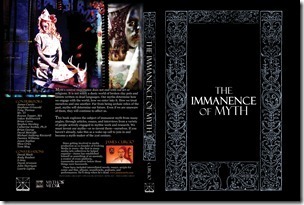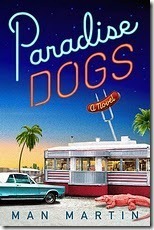Riley Adams's Blog, page 206
April 29, 2011
Making Progress on Our Manuscripts (and Other Things)
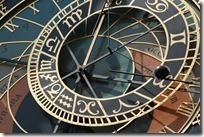 There are times when I get a sense from writers of huge progress being made on manuscripts. NaNoWriMo (in November) is one of those times.
There are times when I get a sense from writers of huge progress being made on manuscripts. NaNoWriMo (in November) is one of those times.
Then there are times when I hear writers are struggling (holidays, summer travel time.)
Honestly, there's just never a good time to write a book. Life is busy, writing involves quiet reflection…it can be hard to fit that time in.
But since there is no good time to write a book, you might as well write yours now. :)
Jane Friedman had a great post last week on Writer Unboxed on adding structure to your writing life.
I especially like Jane's advice about making a weekly and daily goal. She has a link for a free download for a goal sheet. One thing I like about the goal sheet is that it acknowledges that there are impediments to reaching that goal and makes you list them so you recognize them in advance.
I also completely agree with Jane's advice on naming specific tasks to accomplish. For me, the more specific I can be, the quicker I can make my goal. Instead of listing "finish next scene," I'll say: "have sleuth question witness, write setting description for the local park, make sure motivation for sleuth's actions is clear," etc.
The only thing that I might change a little is that instead of 30-60 weekly, dedicated minutes (which admittedly might work for many), I'd say 5-10 minutes a day, whenever they can be snagged, for those who just can't find that 30-60 free minutes in their weeks currently. To write only 5 minutes a day, you do need to be slightly more organized and know what you're planning on knocking out that day (don't spend your five minutes rereading what you wrote the day before.) At least you're making daily progress.
How do you stay on task during busy times?
April 28, 2011
Using Google Calendar to Stay Organized
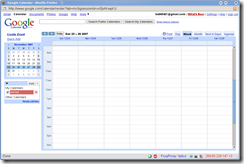 Right now I'm using two tools to keep my calendar organized. I really had to do something new because I suddenly had a ton of stuff going on—book club meetings, a library talk, guests on my blog, my guest posts on others' blogs…plus the usual dental appointments, the children's events, family/friend birthdays, etc. I was waking up at night worrying that something was going to fall through the cracks.
Right now I'm using two tools to keep my calendar organized. I really had to do something new because I suddenly had a ton of stuff going on—book club meetings, a library talk, guests on my blog, my guest posts on others' blogs…plus the usual dental appointments, the children's events, family/friend birthdays, etc. I was waking up at night worrying that something was going to fall through the cracks.
What's really working for me right now is using 2 different methods—the old-fashioned wall calendar method plus Google Calendar.
The reason Google Calendar is working so well for me is because I have a smart phone that syncs to that calendar. So I have the calendar with me at all times. I have to admit that it's really nice. When someone asks me if I'm free to do something on a particular day, I don't have to say, "Can I check my calendar and call you back?" It's just so nice to open the calendar on my phone and check the date and save myself a phone call (I'm no fan of talking on the phone anyway.)
Another really, really nice thing about using Google Calendar (particularly if you can sync it to your phone) is that I can copy/paste from different emails right into the calendar.
For example, say I've got an email for an event of some kind (writing-related or personal). The email might list things that to bring with me to the event, might give directions to the venue, might have the time the event starts and stops. I just select all, copy, and paste it to the corresponding date on the Google Calendar. Then I've got it right there, easily accessible on both my laptop and my phone.
Or it might be an interview request. Lately I had a couple of different blog interviews. The questions were in the body of the email. I pasted the email into the date on my calendar that I needed to turn it in…and set reminders for earlier. Several times when I was out and I had dead time waiting for something, I took out my phone, read the questions, and jotted down answers to email later on my always-handy notebook.
You can also share your calendar out with someone else. Not that that other person might read the calendar like intended. :) But it is nice to know that, if somehow I went missing (I'm a murder mystery writer, so these thoughts are always in the back of my head), that my calendar could be accessed to see where I was supposed to be.
My wall calendar is really needed, too—it's best for spotting potential conflicts on the calendar. Sometimes I just have to see it all laid out on paper. My wall calendar is posted on my garage door where I have to see it when I go in and out of the house.
What are you using to stay organized? Do you use Google Calendar or something else?
April 27, 2011
Publishing Myths
 Publishing is a changing world and it stands to reason that writers and publishers who are adaptable have a much better shot at survival than those who aren't.
Publishing is a changing world and it stands to reason that writers and publishers who are adaptable have a much better shot at survival than those who aren't.
But how should writers and publishers adapt? One way, I think, is by realizing there are industry myths that might cause them to make poor choices.
Hope you'll pop by James Curcio's blog, Modern Mythology, for my look at publishing-related myths.
April 26, 2011
Interview With Author James Curcio
 Today I'm interviewing writer James Curcio. I know James through Twitter, which also led me to his always thought-provoking blog, Modern Mythology. When James recently proposed that he and I exchange guest posts, I was delighted by the idea and knew his interview would represent a unique viewpoint and way of looking at art and writing than I usually take.
Today I'm interviewing writer James Curcio. I know James through Twitter, which also led me to his always thought-provoking blog, Modern Mythology. When James recently proposed that he and I exchange guest posts, I was delighted by the idea and knew his interview would represent a unique viewpoint and way of looking at art and writing than I usually take.
EC:I know you've got a variety of different interests and have worked on projects that deal in various media...
James Curcio: Yeah. Really the only "multi-media" bridge I haven't crossed yet is feature film, and that's not for lack of trying. Soon?
EC: What do you think the outlook is for multimedia art and writing in the future?
I've written several articles about this on modernmythology.net. I'd point people's attention to this one for starters.
But let me also pick up where I conclude that piece, that I think the future of media is actually moving away from the idea that the medium defines the message. Yes, some things work better in one format than another, and you have to figure out what works best in which medium. There are different ways to tell different stories across different platforms. That should be self apparent, right? But the thing that attracts us to all of them is the same.
EC: So, did the common thread, myth, jump out at you as you were looking to see what connected your work, or did you set out to explore this particular area/theme from the beginning?
JC: You predicted where I was going with that. When I took a hard look at the core of what attracts us to stories - and I don't just mean the stories that we entertain ourselves with, or the stories we learn from, or the stories we tell each other, or tell our children as a warning - but all of these things, the binding glue was myth. They are all myths.
But something funny happened to the word "myth." It came to mean something that is untrue, though the origin of the word, mythos, doesn't necessarily imply that. So, while I don't bog down my other creative work with a philosophical analysis of myth, I wanted to take the time to really get into this and share some of the gristle with other creative people. That's how The Immanence of Myth came about.
I think it's really unfortunate that so often in school, we may be taught how to use the tools, or how to critique, but no one asks questions like "why are we doing this in the first place?" And I'm not talking about money. Speaking of: I'm happy to say that we've already got two college level classes that I know about with the book as part of their core curriculum for next year. I hope to see more of that.
I'm looking to create a perspective on the production of media that isn't nearly so compartmentalized. That's why I began focusing my efforts several years back on myth as the common thread, rather than talking about writing, or about music, or about comics... Even though I've worked on projects in all of those mediums.
It's not about the medium, it's about the message. I guess it's a question of the format that you thinks is best to talk about that, and maybe give some examples. You know, the humor of it is probably lost on some, but I'm especially fond of a "gonzomentary" web series we've been working on that deals with a lot of the issues facing the modern artist in a very farcical or satirical way.
EC: Ah, the medium is the message. Or the 'massage' - read that book by McLuhan in college in a Media and Society course. Interesting stuff!
You approach literature or art from a different angle than I do, and one that I think would be interesting to my readers. I've needed to take more of a commercial approach. But I'm very interested in other angles and have always loved the 'art for art's sake' mentality, even if it won't put any food on my table.
JC: And here I thought I was being original! Well, no. I've never been very concerned with originality, thank God. I'm more concerned with being genuine, though it is hard to say what that is.
Actually, I want to be clear about this. I don't at all believe in "art for arts sake." I go into this far more in depth in The Immanence of Myth - probably more in-depth than people with short attention spans would like.
I think art, and education for that matter, have done themselves a disservice by saying "we're other than the world of business," which of course brands itself as being pragmatic. Through posturing in that way, it's almost like "the ivory tower" legitimizes the stance that business is practical and art is bullshit. I think we all know it is quite often anything but.
Can we get past this myth that those that are rich have all earned it through hard work, and the poor are all lazy and deserve what they get? The "financial meltdown" showed that to a lot of people who I guess were hoodwinked before. I was never taken in by that myth. It is cruel spirited and awful on so many levels.
Let me provide a little snippet from The Immanence of Myth on this subject:
There is a misconception within the myths perpetuated by capitalistic culture, which claims that art and philosophy are useless endeavors — at best, a mental exercise, at worst, an activity for criminals and dilettantes. Even arts organizations that demand the arts behave well in business terms are tacitly buying into this myth, such as NEA chairman Rocco Landesman, when he said "Look … you can either increase demand or decrease supply. Demand is not going to increase. So it is time to think about decreasing supply." (Peter Marks, Washington Post, February 13, 2011).
Though inarguable within the context of business, this view forgets that all of the great periods in human history, leaps of progress in terms of science, mathematics, and other disciplines that produce more tangible results, have occurred side-by-side with paradigm shifts in the arts and philosophy. It is impossible, and irrelevant, to definitively argue which came first. How can that be quantified? Art and philosophy, without trade, commerce, and application, is sterile and masturbatory. Similarly, trade and commerce is brutish and myopic when it isn't applied with the sensibility that comes from in-depth philosophical and artistic debate. Both are crucial to cultural evolution, but only when applied together, and the cultural value of art cannot be comprehended from within the valuation system of commerce.
This misconception is one of the dangers of prevalent capitalistic myths. It is possible that it has actually further divorced these two currents, modern art rendering itself a theoretical, navel-gazing reflection upon its place as separate from the profane world of markets and commodity. This, in part, came about through the hands of the art world as a reaction to its position within a world defined by corporate and capitalistic myths, an "art world" arises which in many cases consists of happenings where nothing happens, of canvases painted white, and music performances where nothing is performed.
This is not to say that there has been no value produced, for instance, by John Cage's 4'33", but there can be little argument that this movement in art has unintentionally furthered the capitalist myth that art is purely masturbatory. Conceptual art seems in a sense to merely be a revolt against the capitalistic or at least industrial idea that every thing, every action must have a purpose. Where does this revolt lead?
EC: So you believe that the artistic world may be cutting potential audiences by marketing itself as anti-commercial Culture with a capital c. I do feel that free or inexpensive art or literature is a good way to reach potential customers (readers, listeners, whatever.) What are your thoughts on e-book pricing?
 JC: I play several instruments, and have produced or co-produced quite a few albums over the years. I mention this because I've discovered, as many musicians have, that offering your music for free is, for better or worse, one of the best ways you can market your music. The fact is that there's such a glut of content out there that it's a real competition just to get people's attention in the first place. Charge an entrance fee on top of it, before they are dead sure they want to pay the price of admission, and you may as well shoot yourself in the foot, if not the face.
JC: I play several instruments, and have produced or co-produced quite a few albums over the years. I mention this because I've discovered, as many musicians have, that offering your music for free is, for better or worse, one of the best ways you can market your music. The fact is that there's such a glut of content out there that it's a real competition just to get people's attention in the first place. Charge an entrance fee on top of it, before they are dead sure they want to pay the price of admission, and you may as well shoot yourself in the foot, if not the face.
However, this does seem to work a little differently with books. I offered up a free eBook version of an earlier version of a book, and managed to track over 50,000 downloads. Hot damn! I thought. What if I made that book just a $1? Surely at least 10% of those people would pay a dollar for something similar?
Sadly, I discovered this was not at all the case. Not even 1%. So clearly, though I was taken in by Cory Doctorow's stance that offering your book for free online is good advertising, there's something else at work here. You would have to be totally insane to write because you want to get rich. But if we can't find a way to "monetize" our passion, or our addiction, then we're going to die like hobos on the street.
I don't have the answer, but for now, I'm giving away free chapters of my books as eBooks, and trying to keep eBook prices low... around $3 for short novels and $5-8 for books like the Immanence of Myth, which is 250,000 words. That is of course when I have any say in it. Publishers and sometimes distributors set prices.
EC: I had to smile at your "short attention span" comment. My attention span is decent, but life gets in my way. I had to read your snippet three times because my teenage son and I (it's spring break) were having a discussion on his texting bill and he kept derailing my train of thought. And the cat keeps walking across my keyboard.
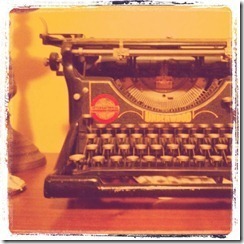
JC: Yeah. It is true that life constantly "interferes" with the creative process or even our attention span. Here's my thing: you said that despite a more pragmatic focus, it's still a supplemental income.
I wrote a piece on Modern Mythology a little bit about writers block, basically saying the idea is b.s. If you're blocked, why write? Do something "useful" for a change!
I'm half kidding but what I'm getting at is that our motive isn't financial - we hope to "buy" our time to be able to not be entirely distracted, so as to have the "right" to write or record music or perform or whatever our passion is.
I've been giving a lot of thought lately trying to figure this out, to look more at the "message" I'm trying to convey in the media - you know, why am I doing this, why have I committed to it even to the point of accepting that it might be the death of me? That's a big deal because I'm not being entirely hyperbolic. I mean it better be a worthwhile message to be worth that, right?
I think... I'm not sure but I think that the basic message is for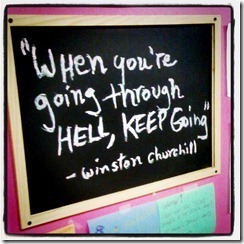 people to allow themselves the right to be more themselves. And to really be genuine in that message I can't just say it. I have to live it. Let me tell you, sometimes it is very hard, but I've done my damndest. People need to not hide, downplay, gloss over, or outright lie about what speaks to them and who they are. Don't hide for your boss, your mom, your lover, your friends. Sure, we frame things different for different people. But we have to embrace our life and "love it violently" as crazypants Sheen said.
people to allow themselves the right to be more themselves. And to really be genuine in that message I can't just say it. I have to live it. Let me tell you, sometimes it is very hard, but I've done my damndest. People need to not hide, downplay, gloss over, or outright lie about what speaks to them and who they are. Don't hide for your boss, your mom, your lover, your friends. Sure, we frame things different for different people. But we have to embrace our life and "love it violently" as crazypants Sheen said.
"But it'll get me fired!" "But they won't love me!" Then, forget those people. I'm serious. And by this I don't mean don't be professional, or just pee all over your computer at work because, you know, screw it. I just mean: be yourself. It amazes me how terrified so many people are of that simple thing.
This is no huge revelation, like no one has said this before, but there seems to be an incredible lack of this kind of genuineness in life. I think it comes out most from a sense of play. Creativity demands we refuse to allow a certain part of ourselves to "grow up." I think we have to hold on to that with our dear lives, because it is our life. Interestingly enough, there's a lot of research being done that we learn best through play. Obviously animals play to learn how to hunt and so on. Yet we sit around in these stolid classrooms and soul crushing factories. I just don't get it.
Some people get the sense - like it seems you did - that I'm about "art for arts sake" or that I need to grow up or get more hard-minded about business. The truth is, I've written plenty of proposals and business plans in my day, I've been involved in quite a few media businesses, and profit is a worthwhile means to certain ends. But those ends are an increased sense of play and creative exploration - and struggle - rather than more profit. Drucker's maxim holds true: "profit is a means, not a motive." Many people in this world have lost sight of that and it's plain disastrous. I don't mean figuratively. I mean it's destroying the planet, or at least, our place in it.
EC: I did get that impression about you. That's because you're a serious artist and I was making an assumption - the writers I tend to meet who consider themselves Artists (usually writing in the lit fic vein) give genre writers flack about commercial fiction. That's merely an observation, since it doesn't bother me...to me, writing is about serving readers and literary fiction and genre fiction both serve an important purpose.
JC: That's a fair assumption to make, about literary fiction and genre fiction. And you were probably reacting to a rant I put out about genres - but my gripe isn't so much the usual resentment I think some "literary" authors feel because genre fiction often outsells them and it's "crap" - it's with the idea that genres and the categories that we apply to things actually have any kind of reality.
Don't get me wrong, genres and categories serve a purpose. They can serve an absolutely necessary purpose. But they're still invented. It's the same thing you get where a discipline will take an issue and consider it "off limits," as if it somehow doesn't apply to them because "that's a matter for anthropology, not psychology!"
I've been wrestling with the genre issue a little with my most recent novel, Fallen Nation: Party At The World's End, which I'm now looking to shop to agents and publishers. It falls somewhere between "dystopian near future sci fi" and "urban fantasy." I wonder at what point these labels just become so absurd that we can let up with it already.
I know when I start talking like that some people think it must be because I'm unfamiliar with marketing or business, but quite the contrary, I've spent altogether too much time reading marketing reports and niggling about demographics. I think it is a potentially dangerous thing because as you said it's about serving readers, and there's a point at which publishers may think they know what people want more than they actually do when they're overlapping these genre ideas over what is actually motivating people.
At the same time, I know not to write any of this as the lede in my query letter. And if past experience is any indicator, it won't ultimately be a query letter that gets me talking to the right person at the right time. It'll be a random conversation at a party or even an interview. I've never had much luck painting by the numbers, though for some odd reason I find myself trying from time to time when things get rough, as if that approach is suddenly going to yield new results.
Let me give an example, to really reply to what you said. I agree that one of the primary purposes of writing is about serving readers. But you can't undervalue the value of writing itself, in terms of self discovery, in terms of its therapeutic benefits. What's interesting to me is that many authors say that if you're just writing for yourself, that's fine, but don't publish.
However, the times where I've tried to write for an audience and focus on that, a lot of people tell me that it doesn't ring as true to them as some of my other stuff, which I may have produced with no intent of making it public at all. It's a very odd thing, to me. In fact, I try to keep up with agent and publisher and writer blogs as much as possible but I'm finding that I really can't intentionally follow any of their advice, or if I do, I do so at great peril to my own work. Because people can tell. It sounds cliche, but it shows. Yet again the most important thing ultimately is to be true to yourself, whatever the hell that means.
Yet, at the same time, audiences want something that's familiar enough that they don't feel like they're being taken too far out of their comfort zone all at once. It's a very odd dance, and I will say that if I'm going to err on one side or the other I'd much prefer to err on the side that leaves them feeling uncomfortable rather than bored.
EC: I was thinking about what you said about how we buy our time as writers. If I weren't making any money with my writing, I think I would feel guilty about spending this much time wrapped up in it. But I'd still do it, even if I weren't making money. I'd just feel guilty.
I think you feel that you're hearing from some quarters that you're an idealist and aren't being realistic. I don't think idealism is counterproductive. The only problem is that you're opening yourself up to getting hurt in the process.
JC: Well, there can be no doubt. Cynicism and idealism go hand in hand and I am inarguably both. But I also think that you have to stick to your ideals - I mean the ones that really matter - because without that, what do you have? I'm no William Wallace. But I'd rather be William Wallace than Babbitt.
I think Hunter S Thompson was very much about this kind of idealism, about showing "the lie" to people. There was to my mind no greater idealist than him, and no greater patriot. Yet many of the things that he stood for in the mainstream mind seem very un-American, because people have lost sight I think of the responsibility that comes along with freedom. He kind of got stuck as this caricature of himself, and that was partially his fault I guess. I don't fashion myself to be like Hunter S Thompson. I'm my own person with my own experiences and my own voice. But I do have a lot of respect for what I see as his goal, in this respect.
So yeah, I have that kind of idealism and it does screw me over sometimes. It'd be a lot easier to "get with the program" in any number of ways. But I don't think I could live with myself if I did.
EC: Changing gears back to your work...You've characterized it as future dystopian with some urban fantasy influence. What's your inspiration for your latest book?
JC: See? I'm trapped in a web of my own words! But, no. I do think those genres are accurate enough. 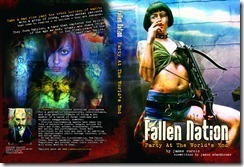 This book was in many ways returning to some of the oldest themes for me. I wanted a way to allow people an entrance into some of more scholarly ideas in the Immanence of Myth that's much more exciting, and at the same time to provide some cultural commentary, about the pathologization of mental illness, about our moral and cultural hypocrisy, and so on.
This book was in many ways returning to some of the oldest themes for me. I wanted a way to allow people an entrance into some of more scholarly ideas in the Immanence of Myth that's much more exciting, and at the same time to provide some cultural commentary, about the pathologization of mental illness, about our moral and cultural hypocrisy, and so on.
The story is about a group of young adults that get locked away for a prank that goes too far... they get off with an insanity plea, so the story begins with them in the mental asylum. They all go by the names of different deities... Dionysus, Loki, Jesus, that kind of thing. And at first they are just kind of their call signs, but one at a time they start taking it seriously and believing, to one extent or another, that they are the present incarnation of that God.
Whether they are or not is of course never answered. Being housed in flesh, they are demigods, and can die like anyone else, so there's no real litmus test of whether they're actually demigods or just batshit insane. Or is there a difference?
When Loki springs them from the asylum, they form a band, and just happen to be in the right place right time kind of thing. It becomes a tipping point for a country already sliding down the hill. So I suppose you could say revolution is a theme of the story too, but that is all happening more in the background. That's not what the story is about. The story is about the characters, and their exploration of what it means to be... well, to be them. Demigods or not.
As I said, I'm looking to partner with an agent or publisher that understands where I'm looking to go with this project. But in the meantime you can pick it up through Lulu as a PDF eBook or paperback. And of course The Immanence of Myth has already been picked up by Weaponized, and will be on Amazon in July.
Thanks for the interview, James!
Have you got any questions for James? Thoughts on profit being a means and not a motive for art and writing? How about staying true to your writing instead of trying to write for a market (and find a publisher/agent?) Thoughts on myths as the appealing, connecting core of all stories?
*****************
 James Curcio creates dystopian propaganda for a generation of disenfranchised hedonists, intellectuals, and drug addicts. Rumors of being a key member of a harem of feral lesbians are slightly exaggerated, however. This propaganda is fed by a fascination with the overlap of narrative, psychology, philosophy, systems theory, and of course mythology, which seems to be an almost pathological fixation of his. Previous brain-washing agents have taken the form of novels, essays, scripts for comic and films, musical albums, soundtracks, podcasts, live performances, and installations. They were distributed to the eyes and ears of an unwitting public through the internet, print, and social media subversion. Now, in a move that may telegraph some kind of psychotic break, he's acting in the world's first Gonzomentary. He's also worked as art and content director, web designer, SEO assassin, sex ninja robot assassin, and once made an egg stand on its end with the force of will alone.
James Curcio creates dystopian propaganda for a generation of disenfranchised hedonists, intellectuals, and drug addicts. Rumors of being a key member of a harem of feral lesbians are slightly exaggerated, however. This propaganda is fed by a fascination with the overlap of narrative, psychology, philosophy, systems theory, and of course mythology, which seems to be an almost pathological fixation of his. Previous brain-washing agents have taken the form of novels, essays, scripts for comic and films, musical albums, soundtracks, podcasts, live performances, and installations. They were distributed to the eyes and ears of an unwitting public through the internet, print, and social media subversion. Now, in a move that may telegraph some kind of psychotic break, he's acting in the world's first Gonzomentary. He's also worked as art and content director, web designer, SEO assassin, sex ninja robot assassin, and once made an egg stand on its end with the force of will alone.
April 25, 2011
Softening a Main Character Just a Smidgeon
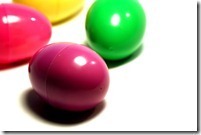 I'm drawn, as a reader and a writer, to protagonists who aren't all sweetness and light. They might just have a mischievous streak, or it could be something darker.
I'm drawn, as a reader and a writer, to protagonists who aren't all sweetness and light. They might just have a mischievous streak, or it could be something darker.
Occasionally, though, I've had to soften up a character when I've thought their bad traits pushed them over the line a little bit into unlikeable territory.
Softening a character's rough edges is easy to do. In fact, you can do it with your antagonist, too—they're probably not all bad, and making them multi-faceted can keep readers guessing and make these characters more realistic.
I was on a shopping expedition Saturday afternoon for plastic Easter eggs (I was definitely running a little behind on this errand.) All the stores were sold out by this time.
When I finally drove to Walmart, I was already in a stinky mood from going to three stores. The scanner at the self-checkout didn't read the bar code (naturally.) I ended up in a long line for a surly cashier who didn't even greet the customers ahead of me. What's more, I suddenly noticed that the eggs were $3 for fewer than a dozen. #%$#%#!!
"You could get twice as many eggs for half as much money," the cashier abruptly said when I finally got the front of the line. "They're right there on the wall…just there. I'll wait for you."
I pretended there weren't twenty people muttering darkly in the line behind me and dashed over to get the cheap eggs. And I'll tell you, I was just like the Grinch in the cartoon—my heart grew three sizes that day. I wasn't exactly the nicest Walmart shopper Saturday, but when I thanked the cashier and smiled, I think she softened toward her crabby customer, too. And probably felt pleased with herself for being helpful.
I know when I'm reading a book and I've already pegged a character as unlikeable, having them do something unexpectedly nice can give them a layer of dimension. We're not all bad and not all good (well, most of us, anyway.)
I really like the little glimpses of kindness instead of huge shifts in behavior. If it's too big of a change for the character (and the change isn't explained by a brush with death or something equally major), then it seems more that the character is just acting out of character (less of a good thing.)
Have you ever had to soften a character? Ever read one that should have been softened?
April 24, 2011
The Craft Essay on Why You Shouldn't Trust Craft Essays—by Man Martin
Today I'm welcoming Man Martin to the blog. Man is a writer, teacher, and founding member of the Perambulators living in Atlanta, Georgia. His debut novel, Days of the Endless Corvette, won him Georgia Author of the Year in 2008. His upcoming release, Paradise Dogs, launches in June from Thomas Dunne Books.
I was speaking to a fellow author at some gathering of writers or other and was moaning about the difficulty in plotting my new novel.
"What you need to do," she told me earnestly, "is write a series of 'set pieces' the scenes you know you need to have, and then you just need to do the transitions to fill in."
I smiled and nodded and thanked her for her advice. I'm always grateful for advice from more successful authors than I am, and just about all authors are more successful than I am. But I had no intention of doing what she said. The truth is, I wasn't really complaining about the difficulty I was having, I was bragging. I wanted her to know I was working on a project that defied boilerplate approaches, that transcended them.
No doubt my friend had learned about writing "set pieces" from one of those "So You Want to Be a Writer" craft books. Craft books and craft essays are chock full of such helpful nuggets. For example, one book on creating characters says each character should have a tag (a word or phrase that defines her, such as an unusual name) a mannerism (a typical behavior or twitch such as pushing the glasses up the bridge of her nose or saying "My stars!") and a relationship with someone or something, such as a cat whom she anthropomorphizes horribly.
I'm not spurning such advice, following it leads to perfectly serviceable narrative such as:
"My stars!" Eugenia Periwinkle exclaimed, pushing her glasses back up the bridge of her nose. "Mr. Dowdle, you naughty, naughty pussycat, what have we said about using your litter box?"
The problem is, if you go about it that way, you're going to end up with troops of characters busily pushing glasses up the bridges of their noses, clearing their throats peremptorily, cracking their knuckles, or whatever mannerism you've decided to foist off on them. No doubt Emma Bovary had her mannerisms, but I don't recall them. It seems to me she merely acted as Emma Bovary would act in each given situation, and Flaubert was wise enough to let her get away with it. Does Humbert Humbert have a mannerism? He certainly has a tag – what do you do with a name like Humbert Humbert – and there's no mistaking he has a relationship. But a mannerism? I don't think so. Nevertheless, he's absolutely as real and convincing a character as I've ever come across. I wept when I read the death of D'Artagnan. (I'm an easy weeper.) But I don't recall his having a specific mannerism. He got into a lot of sword fights. Maybe that's a mannerism.
I could go on about advice from other craft books, and again, I'm not entirely discounting the advice. Every serious writer I know is also a serious student of craft and has a personal list of rules, some learned by hard experience and some gleaned from essays on craft. When I feel my story is sagging somewhere, I have a hard look at it under the magnifying glass of craft. I have a hard look at it anyways.
But at the end of the day, you're not a writer because you've read craft books, you're a writer because you've read books. Writing comes out of overflow, we fill ourselves to the brim with words and living until we just have to write. Basing your writing on what you've learned in craft essays is a bit (I know this is an overstatement) like learning to paint by buying a "Starry Night" paint-by-numbers kit. If you follow the directions, you will end up with something quite pleasant to look at, but it ain't gonna be Van Gogh and it ain't exactly gonna be yours either.
You want to be a writer? Read, read, read. Write, write, write. Let your characters be what they want to be once in a while without pasting a tag or a mannerism on their foreheads. Let situations lead where they want to lead without aiming for the next set piece. When you get stuck, instead of digging out a craft book, reread Richard III, and ask yourself, "What would Shakespeare do?" Then go back and write some more. Then read some more. Then write.
***********
Look for Paradise Dogs, June 2011 from Thomas Dunne Books
Booklist: Paradise Dogs is "simply brilliant."
Visit http://manmartin.blogspot.com
and manmartin.net
April 23, 2011
Twitterific

![Terry3_thumb[1]](https://i.gr-assets.com/images/S/compressed.photo.goodreads.com/hostedimages/1380447585i/1701687.png)
Here are writing links that I've posted to Twitter in the last week.
I'm delighted that now we have an efficient method of locating resources on writing topics when you need them—via the Writer's Knowledge Base search engine and software engineer and writer Mike Fleming's ingenuity. The links I tweet (which are writers' blogs, agents' and editors' blogs) all are added to the engine to make it easier for you to access the information you're looking for.
Interested in a monthly newsletter with the top writing articles, blogger spotlights, and interviews with industry insiders? Sign up for the free WKB newsletter here: http://hiveword.com/wkb/newsletter . (You can unsubscribe at any time, and your email information is never shared.)
How to Punctuate Dialogue in Novels and Short Stories: http://bit.ly/h0EnDm
An editor on show and tell: http://bit.ly/hBIFiJ
Use a character web to track your characters: http://bit.ly/hCLgoI
3 types of secondary characters: http://bit.ly/fCq6cp
17 Places to Get Headline Ideas: http://bit.ly/edroWD
Description 101: Is Your Description Helping Your Story or Holding it Back? http://bit.ly/dEcdw9
How one writer's nonfiction project came to life: http://bit.ly/gQFQps
What No Writer Should Ignore - Their Health: http://bit.ly/hWnm02
3 Guidelines for Creating a Title with Shelf Appeal: http://bit.ly/e30ua2
Myst. Lov. Kitchen: IRISH STEW http://bit.ly/gAiEfm @CleoCoyle
On Epistolary Novels: http://bit.ly/ewGLvd
On motivation: http://bit.ly/dH9RF7
Writer/editor @JaneFriedman 's thoughts on drinking + life + writing: http://bit.ly/dQCLXV
Types of writing warm-ups: http://bit.ly/dMBEJ5
The Armchair BEA: http://bit.ly/hKfWtH
Character traits instead of physical descriptions to identify characters & writing prompts for warm ups: http://bit.ly/eME5Yj @writeprompts
Turning Short Stories Into A Novel: http://bit.ly/fC4Jdr
50 Ways to Dodge The Blog Burnout Sucker Punch: http://bit.ly/eTbDPl
My Story Got Workshopped. Now What? http://bit.ly/hsKtbl
On conflict and the amount to have in your story: http://bit.ly/eRoy4G
Who's Misusing Whose? http://bit.ly/fdP2l5
Scenes that do double-duty. Or when your characters need to unionize: http://bit.ly/e9KXwl
Making Writing Your Business: Specifying Actions: http://bit.ly/gzYwSe
Tips for writing a travel memoir: http://bit.ly/gJuc9C
Get control of your characters: http://bit.ly/glAotz
Read, read, read – and why you should: http://bit.ly/h5duUN
5 things stand-up comedians can teach you about self-publishing: http://bit.ly/fG4xbk
The role of memory in crime fiction: http://bit.ly/fg7j8y @mkinberg
A Defense of Traditional Publishing: http://bit.ly/fFMZUr
For Earth Day: 7 Ways to be a Green Writer: http://bit.ly/hoT4px @LauraMarcella
Ways for Writers to Stay Fit: http://bit.ly/hbJR9Y
The Skill List Project: Viewpoint and Story Experience: http://bit.ly/g8iwOY
Slow Blogging: A Commitment: http://bit.ly/gHGzVH
Myst. Lov. Kitchen: Lemon Cookies for Easter http://bit.ly/eGGivt @CleoCoyle
An editorial chat on prose: http://bit.ly/eIFZFH
Fantasy Is Not Safe: http://bit.ly/h9eR98
Are you prepared to answer the question, "What's your book about?"? http://bit.ly/fbdRlI @jamigold
Writing rituals: http://bit.ly/ekvaXp
Can't Write? Draw: http://bit.ly/gNhzlN
Working Through an Agent's Critique Letter: http://bit.ly/fZIYts @4kidlit
Guest Blogging Etiquette: Let's Make a Deal: http://bit.ly/gvJ4gM
Things to consider before branching out into other genres: http://bit.ly/hoxZQv
What to Do When Your Writing Takes a Back Seat: http://bit.ly/f7ENtj
How to choose the best story idea: http://bit.ly/h9Ii1X
5 Critical Areas to Focus On For Writing Skills Growth: http://bit.ly/igIdVY
Self-editing checklist--voice and viewpoint: http://bit.ly/eTMFJT
How Amazon Recommendation Algorithms Help Sell Your Book: http://bit.ly/fh8Mr3 @thecreativepenn
Making the Author-Editor Connection: The Importance of Being Edited: http://bit.ly/ga3IjE
7 Reasons Why Your Posts Aren't Getting Retweeted: http://bit.ly/ejBnvX
Got social media app challenges? A software trainer & writer wants to help: http://bit.ly/f9vHke @jhansenwrites
Why one writer quit querying: http://bit.ly/e4glqJ @keligwyn
Doubtlessly, there is doubt: http://bit.ly/exObqc
Writing Your Character's Thoughts: http://bit.ly/h9uACh @CherylRWrites
A Yes-and-No Answer About Hyphenating Phrases: http://bit.ly/ig8sHh
Exploring the difference between having readers and having *fans*: http://bit.ly/huGo6J
Mental Signposts That Tell, Not Show: http://bit.ly/g1Jhi3
Defining foundation concepts: http://bit.ly/fQFjKO
7 Secrets of Creating Effective Email Campaigns: http://bit.ly/eP8jCF
A revision success story: http://bit.ly/gdG9cX
Beware Milli Vanilli Syndrome: http://bit.ly/giNYwT
Broadcastr Launches Android App: http://bit.ly/gkvJmR @galleycat
Myst. Lov. Kitchen: Easter Dessert http://bit.ly/gEySIx @CleoCoyle
Is Myth Dead? What is Myth and how did we kill it? http://bit.ly/fOl4tb @agent139
4 Ways to Keep Your Lifeless Blog from Boring Your Readers to Tears: http://bit.ly/eZSWNz
13 Ways to Screw Up Your Query: http://bit.ly/fQMKOU
10 Tips for Writing Excellence From Top Writing Bloggers: http://bit.ly/eb3aJR
Help For Those Late Night Fights With Your Blog: http://dld.bz/Xtsj @jhansenwrites
Beneath Our Feet and Above Our Heads: http://bit.ly/eZ4Et4
On Earning Out: http://bit.ly/hWNNmK
7 Considerations When Writing Descriptions: http://bit.ly/dXuUTg @authorterryo
Standing Out in the Slushpile: Some Basic Tips: http://bit.ly/eAQCrU
What were this month's most popular writing articles? Sign up for the monthly WKB newsletter for links & interviews: http://bit.ly/gx7hg1
Best of the Best - Speculative Fiction Resources: http://bit.ly/fu8KqU @bluemaven
Top 10 Reasons You Should Rewrite That Scene: http://bit.ly/fav9gu
5 brutal truths about feedback on writing: http://bit.ly/fq7GYz @jammer0501
If you've had near misses with agents and publishers – should you self-publish? http://bit.ly/hveW7E @dirtywhitecandy
Blogs and branding: http://bit.ly/gOFDNX
Writing and taxes: http://bit.ly/dR5H4H
Care and Feeding of the Discouraged Writer: http://bit.ly/iaItaE @CherylRWrites
Romantic comedy truisms: http://bit.ly/fI43lZ
Publishing, POD, eBooks, Self-Publishing—Indie Editor FAQ: http://bit.ly/eZuUIK
What Makes a Strong Female Character Strong? http://bit.ly/fL9usM
Do you know enough to self-publish? http://bit.ly/eUxi0U
Be a Transparent Tweeter: http://bit.ly/hKI4OZ
Mix your industry learning with writing time: http://bit.ly/f0yl9z @jamigold
A look at 'quiet' murder mysteries: http://bit.ly/e4H9c8 @mkinberg
Color theory and color symbolism: http://bit.ly/fx9gYI
Myst. Lov. Kitchen: Quick Potato Casserole http://bit.ly/dWhmnR @CleoCoyle
10 Reasons Why You Should Be Blogging: http://bit.ly/g7hd82
Abstraction of interactions: http://bit.ly/hfSAma @RavenRequiem13
Mystery Writer's Guide To Forensic Science - Paternity Tests: http://bit.ly/h0bvfj @clarissadraper
On em dashes: http://bit.ly/eqdQoj
When did your love affair with books start? How one editor's love of books began: http://bit.ly/i3xdAV @p2p_editor
How Do Your Characters Sound? http://bit.ly/e4qMpc @Paize_Fiddler
Tips for designing your own cover from an author who's done it: http://bit.ly/gIjNDz , http://bit.ly/hT38oa, http://bit.ly/fwHD9i @smreine
Will E-Books Save Short Stories? http://bit.ly/gKsXlV @ajackwriting
10 lies you might tell yourself while editing: http://bit.ly/hj3bfV @elspethwrites
Reality vs Drama (modifying reality to fit our story needs): http://bit.ly/hNDgxu
Turn Writing Weaknesses into Strengths: http://bit.ly/es6K6P
The entire NY Times "Writers on Writing" series: http://bit.ly/eAUAeF via @Quotes4Writers
Fictional Time Travel That Won't Make a Physicist Cringe: http://bit.ly/gnVGx3
When Should Writers Worry About Copyright? http://bit.ly/g7SDJ7
12 Signs Your Novel isn't Ready to Publish: http://bit.ly/i3tSDY
5 Tips for Getting Back in the Groove: http://bit.ly/hfN8tb @CherylRWrites
3 myths about agents: http://bit.ly/epLWL9 @tawnafenske
What Will It Take To Make Science Fiction Romance "Truly Excellent"? http://bit.ly/hmgxWx
Using the sense of smell in your writing: http://bit.ly/eMbJve
The reader's experience: http://bit.ly/eK3h2G
Don't hide info that readers need: http://bit.ly/frISMF
Design themes for your WordPress site: http://bit.ly/idaGYF
Independent tracking of eBook sales: http://bit.ly/elNYKk
5 helpful questions for building a story: http://bit.ly/hLxQjY
Writing in the Golden Age of Ebooks: http://bit.ly/gDtn7Z
Scriptwriters: A Procrastinator's Guide to Surviving Act 2: http://bit.ly/g7ZpGh
Celebrating the 'empty nest' of a new book: http://bit.ly/geaQpf
The Ebook Will Evolve. So Should Authors: http://bit.ly/hfVWIN
The writer's thesaurus--now with entries for weather to join the entries for setting, emotions, symbolism: http://bit.ly/eIGRMO
How to develop raving blog fans: http://bit.ly/fZJODJ
The Writer's Life? Only You Know: http://bit.ly/hJkRE4
Think Like A Publisher #8… Price, Discounts, and Sales: http://bit.ly/edGdg3
10 Reasons to Practice Freewriting: http://bit.ly/g0vVEi @CherylRWrites
What were this month's most popular writing articles? Sign up for the monthly WKB newsletter for links & interviews: http://bit.ly/gx7hg1
Introducing The New Slush Readers: http://bit.ly/e9RB4f
Booksigning Etiquette: http://bit.ly/fbxSSD
The importance of pathos: http://bit.ly/gcGthd
Writing Your Character's Thoughts: 3rd Person Limited POV: http://bit.ly/dKAPQI @CherylRWrites
5 Qualities to Consider During Character Development: http://bit.ly/i8DP77
Brainstorming tips: http://bit.ly/eJFH9b
Style Sheets: An Editorial Tool: http://bit.ly/hSJTvn
Key Story Elements - Ordinary World and Special World: http://bit.ly/eHj75K
How to Avoid the Comparison Trap: http://bit.ly/e7elw9 @keligwyn
YA Deals By The Numbers: http://bit.ly/e4qFiC
They're Just Not That Into You: Dealing With Reviews: http://bit.ly/e9vL5N
An editorial chat on character development: http://bit.ly/fwqCT1 @dirtywhitecandy
Learn how to write a screenplay by studying great scripts: http://bit.ly/e1eC09 #scriptwriting
Freelancers--Avoiding Unscoped Work from Unreasonable Clients: http://bit.ly/gRV0dm
Myst. Lov. Kitchen: Cadbury Creme Style Chocolate Easter Eggs From Scratch? http://bit.ly/hkCnEg @CleoCoyle
A Loose History of Vampires: http://bit.ly/fYBJcb
The Problem of Absolutes in Fantasy Literature: http://bit.ly/eMtibY
Do We Need Our Heroes to Slip? http://bit.ly/hq5UQP
Best Tweets for Writers (week ending 4/15/11): http://bit.ly/e1eN2v
A roundup of interesting links for historical writers: http://bit.ly/fgg9YP
The Dystopia/Utopia Dichotomy: http://bit.ly/ihAXWr
Book Fair Bewares for Writers: http://bit.ly/gOQplX
Overstuffed Dialogue: http://bit.ly/eRADSv
27 ways to promote your book—before writing it, before launching it, & after publishing it: http://bit.ly/f7E43A
Need help with scene transitions? http://bit.ly/fivggV
4 Places to Get Your Creative Juices Flowing: http://bit.ly/eamUcz
When the Words Won't Flow: 4 Tools to Try: http://bit.ly/ey9GkX @CherylRWrites
How Not to Use Speaker Tags and Action Beats: http://bit.ly/evgmqs
Just make the pancakes. http://bit.ly/ewkm9J @Christi_Craig
12 Weak Words We Can Turn into Strong Ones: http://bit.ly/dZ7EaA @keligwyn
Writing prompts to jumpstart creativity: http://bit.ly/fxp2iY @WritePrompts
Job-hunting advice for journalists selling skills in the digital market: http://bit.ly/eGeQoB
Novelist proposes to girlfriend in print (Guardian): http://bit.ly/gzkToV
The Aches and Pains of Being a Writer: http://bit.ly/fblaIr
E-publishing With a Publisher Versus Self-publishing: http://bit.ly/g11uQB
Slipping in Character Description: http://bit.ly/hnQSKy
How do you know which critique advice to take and which to ignore? http://bit.ly/hvPKBB
Myst. Lov. Kitchen: Welcome Guest Blogger Amanda Flower http://bit.ly/fVBCoR @CleoCoyle
How To Amp Up Sexual Tension In Your Story: http://bit.ly/dSLNvg @RoniLoren
20 Great Similes from Literature to Inspire You: http://bit.ly/fR5WXP
Should we jot down story ideas we get, so we won't forget them? Stephen King says not to: http://bit.ly/gE4NkH @hektorkarl
7 Strategies to Keep Momentum When You Don't Have Time to Write: http://bit.ly/hJ5d2a @CherylRWrites
Want to write a book but don't know where to start? http://bit.ly/fjlaTJ
Mistaken Newbie Writer Beliefs: http://bit.ly/e7j6X5
Jewels in crime fiction: http://bit.ly/e8c7fD @mkinberg
April 22, 2011
Making a Good Impression
 My children were off all week for spring break. We had a lunch date with my sister yesterday.
My children were off all week for spring break. We had a lunch date with my sister yesterday.
My plan was to drive to uptown Charlotte, pick her up outside her building, and go off to a sub shop for a casual lunch.
The children and I were just about to hop in the car when I got a text. "How about," my sister said, "if you park and come up in the building? We'll visit for a little while and the kids can see my office. Then we can go for lunch."
That sounded great, but the children and I looked really scruffy. I was wearing denim capris that had shrunk from staying in the dryer too long (oops) and a sweatshirt that had seen better days. My daughter had on an outfit that didn't match and my teenage son looked like he'd just rolled out of bed. We looked all right for a sub shop with my sister (maybe), but not good for going into a skyscraper of a major bank and meeting my sister's coworkers.
"Sure," I texted. Then we all changed clothes before we headed out. :) We met some nice people on the 18th floor and looked like upstanding citizens.
I spend a good deal of time trying to make sure that I'm giving a good impression to readers, other writers, and people in the publishing industry when they encounter me online.
Making a bad impression in person isn't good either, but at least those usually fade. If you mess up online, it lives online forever. It's like the mistake that keeps on giving.
I know that, on Google, my website is the first thing that comes up. Which, actually, is bizarre because I'm sure my blog gets more traffic. My website (although it needs updating) tells people a little about me and my books and how to contact me or buy my books. That's really its sole purpose. I keep it pretty basic. I think it's important to have some sort of website to serve as a hub for our online identity.
Another important place to make a good impression is blogging. Again, I've got a way to contact me, something about me, and a little about my books. For me, blogging is my favorite way to interact online. Although I know some writers do tread into political discussions or other controversial areas….I'm just not going to go there. I've heard of a couple of writers who got negative feedback from different publishers for expressing some of their (strong) opinions. And again it's the 'making a good impression' thing—I don't want to turn off any readers, for sure. I wouldn't assume that everyone shares my views on different subjects.
Online bookselling sites are other places where writers need to make a good impression. Actually, it's good to create a non-impression there. We really don't need to ever pipe up in the review section for our books. If we get a bad review, we get a bad review. Arguing with the reviewer really just looks unprofessional. There are times I've noticed, though, when readers have given a book a bad review because Amazon shipped it late, etc. In those cases, I'd just report the review to Amazon because it doesn't have anything to do with the book. But I still wouldn't defend my book online—I just don't think the writer ever wins.
Social networking sites like Facebook and Twitter are tricky sometimes because it's easy for words to be taken the wrong way. And I do recommend having a public Facebook identity and a private one. When my old friends from junior high want to friend me on my public page, I just gently suggest that they'd be more interested in my private one…and vice versa. Otherwise I'd end up being tagged in pictures from when I was 12 on my professional account. That would stress me out. :)
Looking back over this post, I'm realizing how cautious it sounds. I do interact a lot online every day—but I always read over what I'm saying before I hit 'send.' And with static sites (like my website), I try to make sure it's just serving its purpose.
How do you work to make a good impression online?
April 21, 2011
Writing Warm-ups
I have such a hectic schedule that I usually end up writing on the go, scribbling out a couple of paragraphs when I've got a few quiet minutes.
I used to think that I was doing this writing without any kind of warm-up. I'm realizing now that that's totally wrong—I'm warming up by my daily habit of blogging (and the fact that I write a little every day).
Warming up options:
Blogging—To me, blogging is one of the easiest ways to warm up for writing each day. Besides the great writing exercise, it's a nice way to stay in the habit of writing, develop friendships, and build a platform.
Morning Pages—I've heard a lot about Morning Pages (a daily warm-up recommended by author Julia Cameron in her book, The Artist's Way but haven't actually tried it myself. She states that:
Morning Pages are three pages of longhand, stream of consciousness writing, done first thing in the morning. There is no wrong way to do Morning Pages-- they are not high art. They are about anything and everything that crosses your mind-- and they are for your eyes only.
Short projects (poems, short stories, articles): Completing short projects can help you feel like you're making some creative headway, especially if it looks like the end of your novel is light years away. They're also nice if you're getting restless or bored with what you're currently working on.
Prompts: Prompts aren't only good for getting your creative juices flowing, I've heard some writers say that they can also inspire new direction for stories they're currently working on.
Recently, Anjie from Prompts for Writers asked me to be a guest poster and write some prompts. I do really like Anjie's site because she always comes up with more than one prompt—she'll have a journaling prompt, one for poetry, one for fiction, etc.—and I think her site would be a great resource for teachers as well as writers. My post is up there today: http://promptsforwriters.blogspot.com/ . (As a side note, I know that she's also looking for writers to guest there and write prompts…might be a unique part of some folks blog tours.)
How do you warm up for writing? Or do you jump right in? Or, like me, do you warm up early and then jump right in at several later points during your day?
April 20, 2011
Writing Other Genres
 I've noticed a school of thought among writers that agents are excited about having jack-of-all-trade authors in their stables—who can write a variety of material in different genres. It would mean the writer is more salable, right?
I've noticed a school of thought among writers that agents are excited about having jack-of-all-trade authors in their stables—who can write a variety of material in different genres. It would mean the writer is more salable, right? From what I've heard from other writers, this isn't usually the point of view of their agents. I'm not speaking from personal experience because I'm only interested in writing traditional mysteries for the foreseeable future.
But I've heard that agents prefer it when writers specialize in a genre.
I think this is because you're easier to brand as a writer to editors that the agent might know. I'm pretty sure that my agent is branding me to editors as someone who writes traditional mysteries with Southern settings. It definitely makes it easier for me to get work. If someone wants a series that fits my profile, they know they can contact my agent about it.
When a writer writes several different genres (not genre-blending, but different genres for different books), I think it muddies the waters a little, in the agent's eyes. Now they need to brand you several different ways to their contacts. Maybe they need to develop new editorial contacts in areas where they haven't before.
I know that if I suddenly decided that I wanted to write children's picture books, I would need to find another agent for those books. My agent doesn't handle that—she says so on her site. I would be asking her to make totally new relationships with people in an area she doesn't plan on working in. Besides, I would want an agent that specializes in those types of books and has contacts in that genre, anyway.
If I were to switch genres, I'd almost definitely do it under a pseudonym. That's because I wouldn't want my mystery reading base accidentally buy books that are a totally different genre—possibly one they don't even read. That would be a good way to lose some readers.
Writing under a pen name basically means starting over with a fresh platform…getting that name known on Twitter, Facebook, blogs, etc. You'd have to work to tie in your pen name to your real name (that's already branded.) I've done this and it does take a lot of extra energy.
Agent Wendy Lawton wrote a great post some time ago on the Books and Such blog about switching genres. She points out that most of a writer's dedicated readers don't want to follow along into new writing ventures. She states:
They have expectations. They don't want you to write like Jodi Picoult. If they want Jodi Picoult, they'll buy Jodi Piccoult. They want you to write like you.
Another point that Wendy Lawton makes (that I hadn't really thought of) is this:
And wanting to write it all– even if we can– displays a strange kind of hubris. It's like you are saying you are all any reader needs. "You like mystery? I'll give you mystery. You want a tender memoir. I can do that. You want literary fiction. That's me. You want a book on how to save your marriage? Let me get right on that."
All that being said—I'm likely going to branch into other genres at some point. I'd like to have another 25 years in this business and at some point I'm going to be interested in trying other things. I've already decided that when that day comes, I'll probably have to query an agent for that particular genre and also write under a different name.
In the meantime, I'll write magazine articles, poetry, and the occasional short story to just shake things up a little bit.
Are you a writer who writes different genres? How are you approaching representation and promotion?

